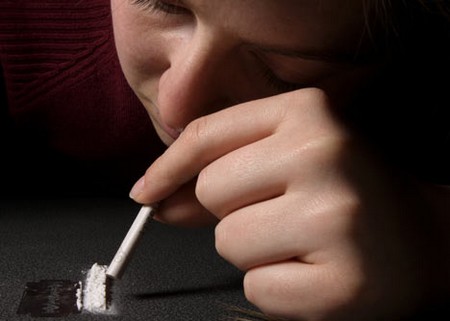Many people suffer from different addiction types other than drugs and alcohol, and here are some of them.
Drug Addiction

From marijuana to heroin to LSD and ketamine, these drugs have a had huge impact of society ever since people began turning to them for refuge or recreation.
Sadly, there have been lots of drug-related casualties along the way, and the figures are still climbing. There are many types of drugs one can become addicted to and the effects are varying. From the somewhat habit-forming to the hardcore physically addictive substances, the following are the most common types of drug addictions:
Alcohol Addiction Brain damage, cancer, heart disease, liver disease, impotence. Love of the bottle can get any alcoholic that, and so much more. Learn more about alcohol abuse.
Nicotine Addiction Many smokers probably wish they could stop smoking. Nicotine, however, seems to make it more difficult for them to do so. Learn more about nicotine dependency.
Cocaine Addiction Cocaine is one of the priciest drugs in the market. That fact, however, doesn't deter millions of users from making it the most abused major stimulant in America. Learn more about cocaine addiction effects.
Opiate Addiction Opiates are often used to relieve pain. Addicts use it for so much more than just that. Learn more about opiate dependency.
Heroin Addiction There was a time when heroin was considered "harmless". Whoever said that must have been an addict himself. Learn more about heroin addiction symptoms.
Meth Addiction This is the drug that is giving cocaine a run for its money in the United States. One national survey reveals that approximately 10 million people in the United States have tried methamphetamine at least once.
Methadone Addiction Oddly enough, this opiate analgesic used to treat people for heroin addictions has become quite an addiction itself. An appropriate substitute for morphine indeed.
Marijuana Addiction Call it "pot," "herb," "weed," "boom," "Mary Jane," "bud." "gangster," and "chronic." No matter what the name, this is still the most frequently used illegal drug in the world.
Caffeine Addiction Can't make it through the day without your macchiato? Then you're addicted to caffeine.
Steroid Addiction Steroids are famous for their performance enhancing and muscle building properties. No wonder it's the drug of choice for many athletes.
Vicodin Addiction Vicodin abusers tend to make some of the most adamant denials they're addicted to the drug. It is, after all, prescribed by a doctor for pain medication, and therefore, they can't be addicted.
Prescription Drug Addiction No one who starts out taking prescription drugs set out to be come addicts. But unfortunately, most prescription drugs, like Vicodin, Codeine and Demerol, are physically addictive.
Behavioral Addiction

Behavioral addiction is different from drug addiction in the sense that no mind-altering substance is being ingested. Still, it displays the same symptoms as drug or alcohol abuse. A behavioral addict, by definition, is someone who couldn't control or stop an activity despite experiencing adverse consequences of the activity.
Gambling Addiction Most people gamble for fun. When gambling stops being a recreational activity and becomes a way to seek thrills or as a means of escape on a regular basis, then it becomes an addiction. Learn more about gambling addiction.
Food Addiction We all eat to live. Some people, however, live to eat, as they compulsively and obsessively crave for and eat food even when they're not hungry or when they're depressed. Learn more about food addiction symptoms.
Sex Addiction Few people would admit they're addicted to sex. Little do they know that when the compulsive use of pornography and masturbation to repeated sexual affairs, regular use of prostitutes, voyeurism or just obsessively thinking about sex becomes the norm, they are already sex addicts.
Love Addiction Love addiction is not really about love. Truth be told, love addiction is closer to codependency, an unhealthy one at that, than love. Learn more about the symptoms of relationship and love compulsions.
Porn Addiction Porn addiction is characterized by compulsive reading of pornography, obsessive viewing or thinking about pornography and any other sexual themes. If you got boxes upon boxes of porn videos at home, or when you actually think that the Internet is for porn, chances are, you're a porn addict.
Work Addiction otherwise known as "workaholism" in the U.S., is the most respectable, encouraged and praised of all addictions. It's also pretty deadly, claiming hundreds of lives a year mainly through stress related heart attack and stroke. Find out if you or someone you know could be a workaholic.
Exercise Addiction Exercising is healthy. Exercising to the point of dependency and compulsion is not. Learn more about exercise addiction effects.
Video Game Addiction This is one addiction parents should really worry about. After all, children and teenagers make up the bulk of video game addicts. Find out if you or a loved one have become addicted to video games.
Shopping Addiction Going into a store planning to buy one pair of shoes and coming out with seven, or spending $500 instead of the budgeted $100 are some symptoms of a shopping addict. And just like an alcoholic or a drug addict, "shopaholics" tend to keep proof of their excessive shopping habits from their partners.







